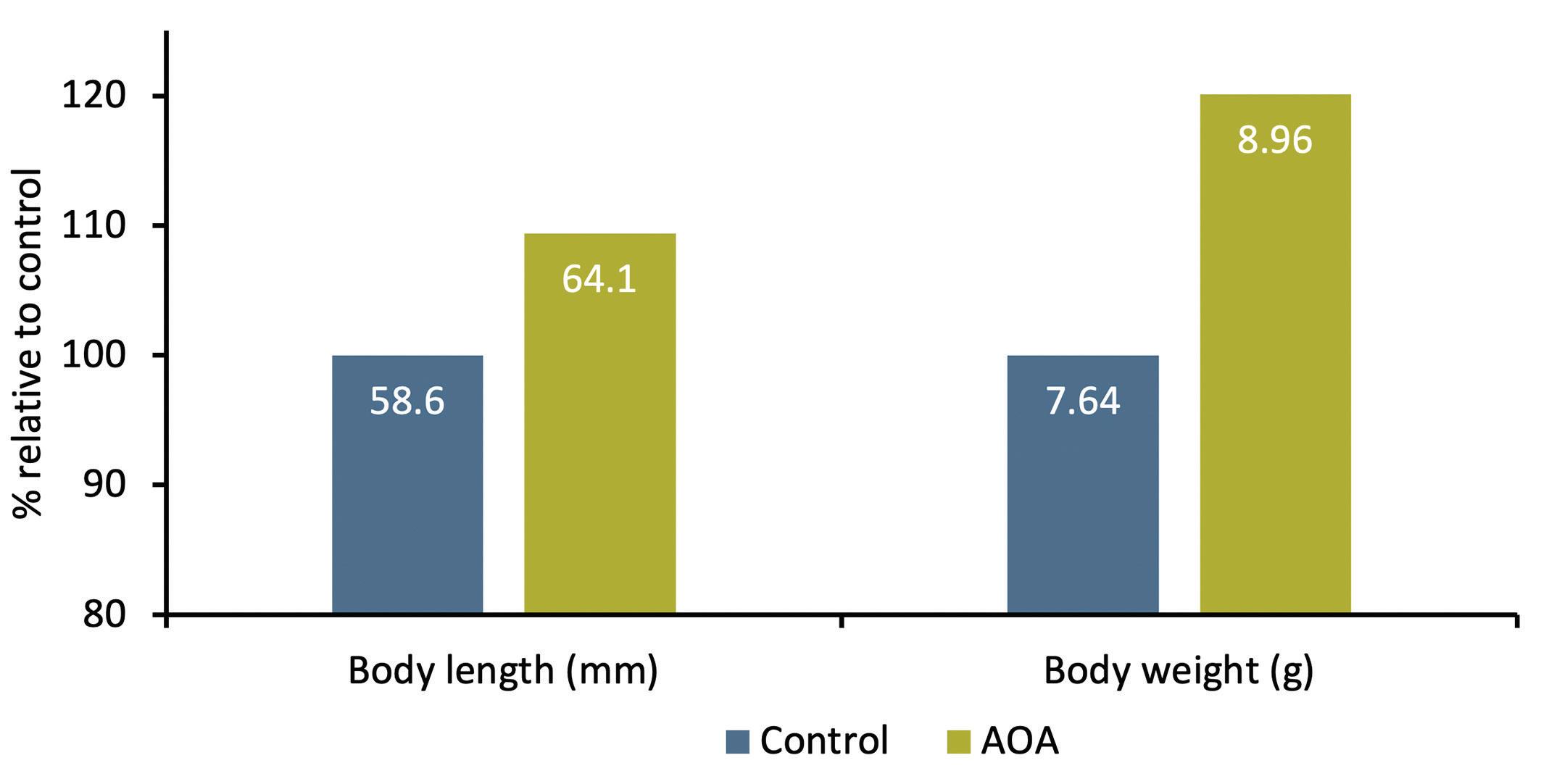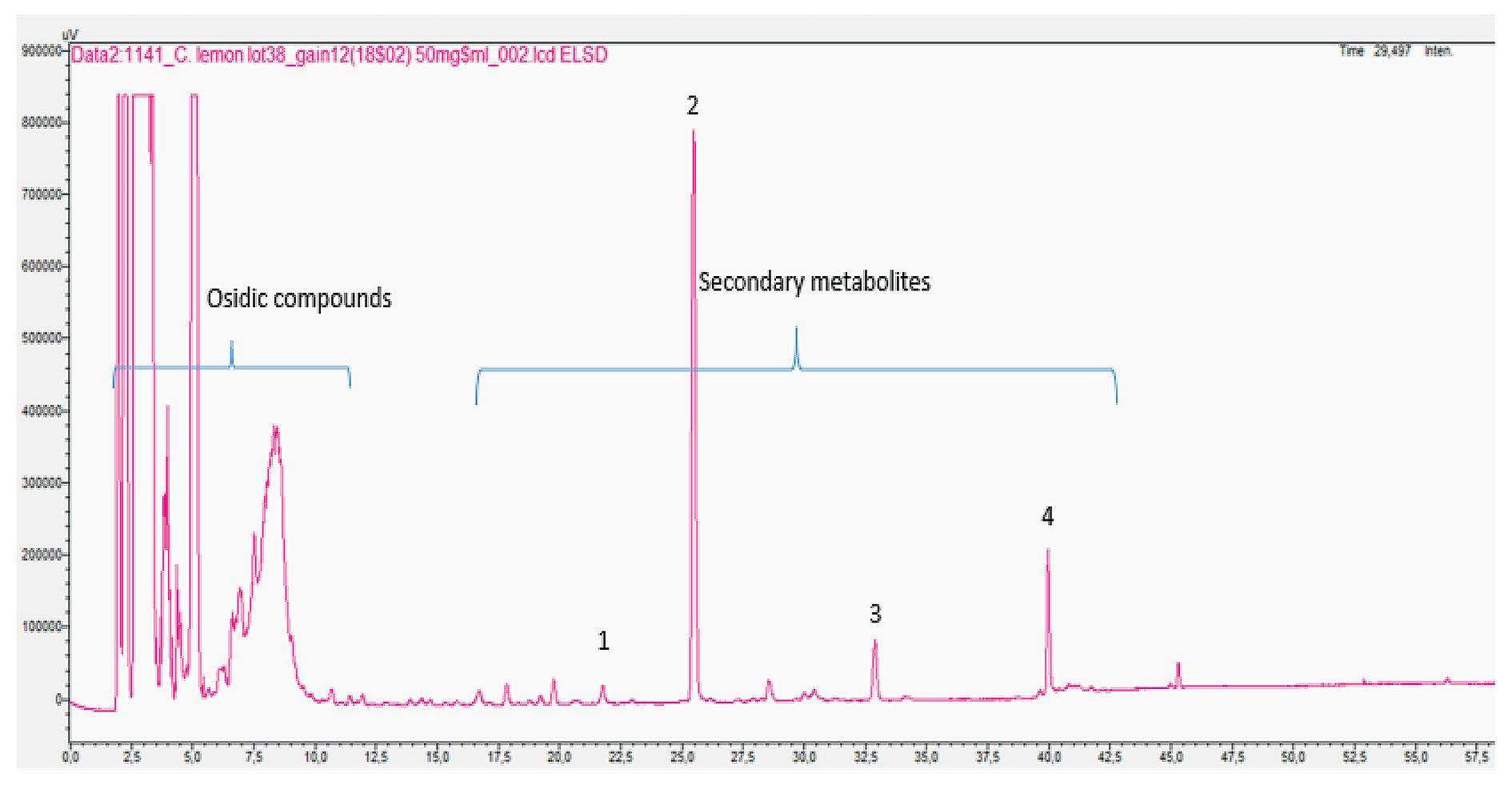
5 minute read
How to enhance growth performance of tilapia
Iris Kröger, Dr. Eckel Animal Nutrition
In intensive aquaculture systems with high stocking density, tilapia is exposed to environmental stress such as hypoxic stress and increased loads of pathogens. These challenges trigger a series of reactions of the immune system and are associated with a high risk of oxidative and inflammatory stress. Because of the high energy demand of immune cells, inflammatory reactions limit the growth performance of tilapia.
Using flavonoids to boost health and performance
In addition to management measures to reduce the risk of environmental stress, innovative feeding strategies hold great potential. In fact, phytogenic feed additives can improve fish tolerance to environmental and inflammatory stress and thus enhance growth performance. For example, dietary plant flavonoids can reduce inflammatory responses in the cells and strengthen them against hypoxic stress (Xia et al., 2020). In addition, their antimicrobial and anti-inflammatory properties have been repeatedly demonstrated (Sae-Law et al., 2017). Furthermore, their properties to increase weight gain in fish, for instance by feeding green tea extracts and quercetin, have been highlighted (Zhai & Liu, 2013; Chandravanshi et al., 2020). This shows the potential offered by single flavonoid sources to improve health and performance in aquaculture.

Figure 1. Effect of Anta®Ox Aqua on growth performance of tilapia.
Since different flavonoids unfold different effects in vivo and in vitro, optimal performance, for example in tilapia, is likely to be achieved by combining different flavonoid sources.
As recently demonstrated, a combination of selected flavonoids significantly enhanced the performance of farm animals and shrimp (Gessner et al., 2008; Niyamosatha et al., 2015; Shata et al., 2019). These results suggest that the feed additive Anta®Ox Aqua, with its high content of flavonoids from grapes, green tea and hops, may contribute to the enhancement of growth performance in tilapia.
Based on the promising findings of the effects of flavonoids in aquaculture (Zhai & Liu, 2013; Niyamosatha et al., 2015; Chandravanshi et al., 2020), we conducted a trial to investigate growth-promoting effects of Anta®Ox Aqua (AOA). This feed additive contains a carefully assembled formulation of different flavonoid sources to exert synergistic effects and is characterized by small particle size, optimizing bioavailability in the animals. We hypothesized that the effects of AOA would be more potent than those reported by Chandravanshi et al., 2020 and Zhai & Liu, 2013.
During the experiment, 342 tilapia were kept in six tanks for eight weeks. The initial size of the fish was 1 cm with 0.1 g average body weight and a stocking density of 0.125 kg/m3. During the experiment, fish were divided into two groups. While the negative control was fed commercial starter feed without any feed additive, the treatment group was fed the flavonoid-rich feed additive AOA (Dr. Eckel Animal Nutrition GmbH & Co KG) at a dosage of 0.5 kg/t of feed. Fish were fed manually three times per day.
To determine the effects of AOA on growth performance, body weight and body length were measured individually.
Substantial effects on body weight and length
Results showed that AOA increased the body length of tilapia by 9%. In addition, fish fed AOA for eight weeks had a 20% higher body weight than the fish in the control group (Fig. 1).
This confirms the great potential of AOA for performance optimization in tilapia farming. The growth-promoting effects can in all likelihood be attributed to the synergistic combination of flavonoids in AOA, as flavonoids have been shown to increase immune capacity and reduce antioxidant and antiinflammatory effects in fish (Chakraborty, 2013; Zhai & Liu, 2013).
The growth-enhancing effects of AOA that we observed were stronger than those in the study by Zhai & Liu, 2013. Here, the data reported that the plant flavonoid quercetin increased the body weight of tilapia by 12%. In their study, fish received a much higher dosage of the flavonoid, namely 1.6 kg quercetin/t of feed (Zhai & Liu, 2013). This indicates that AOA is more effective than feeding quercetin, even at significantly


lower doses. As previously mentioned, this higher efficacy is most likely due to the combination of different flavonoid sources in AOA, which, in synergistic action, have been found to increase growth-promoting effects in tilapia.
The next step was to compare the results of green tea to AOA. According to the authors of the study, the inclusion of green tea fed at a concentration of 0.5 kg/t feed enhanced the weight gain of carps by 15% (Chandravanshi et al., 2020). In this experiment, fish received the green tea for a period of 12 weeks. However, the growth-promoting effect at the end of the study was smaller than the effects of AOA in our study, which covered only an eight-week period.
This suggests that AOA is already more effective than the administration of flavonoids from green tea in shorter periods of time. This higher effectiveness can, with reasonable certainty, be attributed to the selected combination of different flavonoid sources in AOA. Another explanation for the stronger effects observed in our study is the exceptionally small particle size. If phytogenics are present in very small particle size, this increases the specific surface area of the plant materials and thus the bioaccessibility and bioavailability of the flavonoids (Wang et al. 2014).

Conclusions
Limited growth due to environmental and inflammatory stress is a serious threat causing severe economic losses in tilapia farming. Anta®Ox Aqua, a natural feed additive with a particularly small particle size containing a unique combination of different flavonoids, showed substantial growth-promoting effects in tilapia. Therefore, feeding concepts containing Anta®Ox Aqua are a promising means to optimize performance and improve profitability in tilapia farming.



References available on request.

More information: Iris Kröger
Technical Sales Manager Dr. Eckel Animal Nutrition, Germany E: i.kroeger@dr-eckel.de










